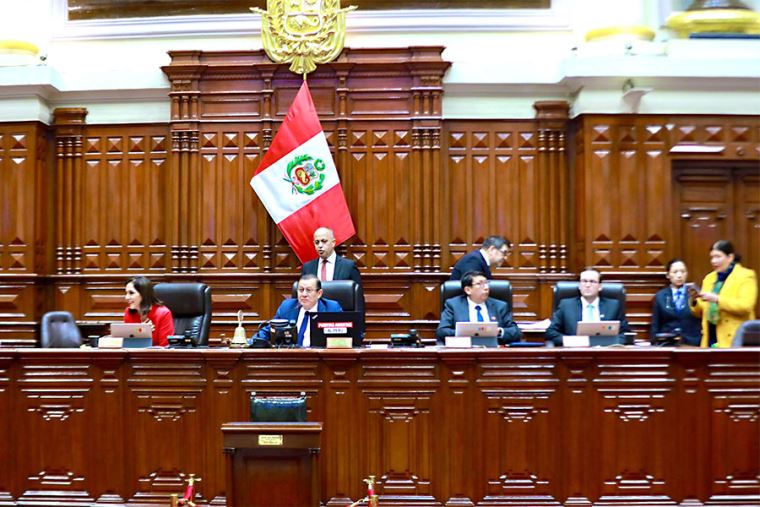After it was not voted on in the last Plenary Session on Friday the 13th, despite the fact that the head of the Legislature, Eduardo Salhuana, announced it to Perú21, the law that supervises NGOs has once again been placed on the agenda, this time, of the Permanent Commission, for its vote.
LOOK: They ask that Congress summon the chancellor due to foreign pressure on the NGO law
This, despite the fact that Perú21 reported that there were complaints from congressmen of international pressure from the US, Canada and Great Britain to not approve this law.
The aforementioned vote would take place, in this new scenario, after the legislative period ended, that Friday the 13th, and the Plenary gave the green light so that the Permanent Commission could continue in session until the end of February, before the start of the next legislature. with the prerogative to approve laws.
This means that the aforementioned opinion could be put to a vote in Friday’s session. This is a cumulative of five bills: 6162, 6252, 7140, 7354, 7367 and 7505, which proposes to modify Law 27692, Law creating the Peruvian Agency for International Cooperation – APCI, “with the purpose of strengthening the work of said institution and contribute to the transparency and supervision of the execution of the resources received by the entities that manage non-reimbursable international technical cooperation”.
According to the text of the opinion, this bill “establishes the mandatory registration and presentation of annual declarations of national non-governmental development organizations (NGDOs), foreign entities and institutions of international technical cooperation (Eniex), private non-profit institutions “Profit recipients of donations of a welfare or educational nature from abroad (Ipreda), modifying Law No. 27692, Law creating the Peruvian Agency for International Cooperation.”
FOREIGN PRESSURE
Peru21 revealed, on the 9th and 10th of this month, complaints from congressmen that foreign countries such as the United States, Canada and Great Britain put pressure, with telephone calls and visits, so that the aforementioned law was not approved.
Former Foreign Minister Luis Gonzales Posada and former Vice Foreign Ministers Eduardo Ponce and Hugo de Zela, in an interview with Perú21, considered on that date that the Foreign Relations Commission should summon the head of Torre Tagle, Elmer Schialer, so that he can receive – from the legislators — complaints of pressure from foreign countries so that the law that will supervise NGOs is not voted on or approved in the Plenary.
However, the commission did not cite him.
On Thursday the 5th, as reported by this newspaper, congressmen Alejandro Aguinaga, from Fuerza Popular, and Américo Gonza, from Perú Libre, denounced that there are representatives of foreign countries who have been calling on the phone and have visited legislators to abort the approval of said law, which establishes transparency mechanisms for NGOs about the funds they receive and their destination.
Aguinaga indicated on that occasion that, despite the fact that Canada has approved a rule against foreign interference in July of this year, “we see that its representatives are calling (congressmen to pressure for the law).”
CANADA IN THE SIGHT
The chancellor’s summons would make it possible to find out from the legislators themselves whether the ambassadors of Canada, the United States and Great Britain, or their intermediaries, have been part of that pressure.
According to Gonzales Posada, the Foreign Ministry had already called the Canadian ambassador, Louis Marcotte, to ask for an explanation for the complaints.
“I understand that the Foreign Ministry has already summoned the Canadian ambassador. So, the mechanism is the following: the resolution that is approved in the Foreign Relations Commission of Congress must be sent to the Foreign Ministry so that it, in turn, sends that note of protest to the embassies involved,” he concluded. .
RECOMMENDED VIDEO
















